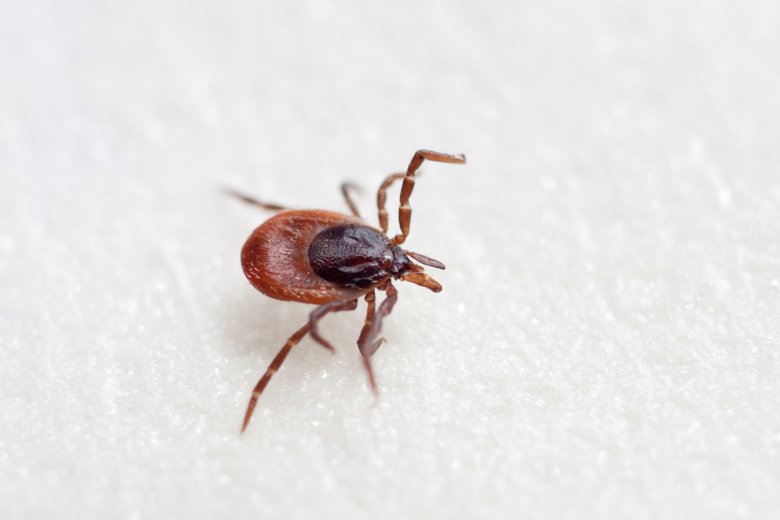Promising vaccine for Crimean-Congo virus

Researchers at Karolinska Institutet have led an international team of scientists who have tested a vaccine for Crimean-Congo virus on primates for the first time. The vaccine provided protection against the virus, which can cause fatal haemorrhagic fever, and showed no serious side-effects. The study is published in the journal Nature Microbiology. The next big step will be to test the vaccine on humans.

“Crimean-Congo fever is a serious and often fatal disease,” says the paper’s corresponding author Ali Mirazimi, adjunct professor at the Department of Laboratory Medicine, Karolinska Institutet. “There’s a desperate need for a vaccine to protect risk groups, so I’m very happy to see that our vaccine provides robust protection against the virus in primates and that we can now plan clinical human studies.”
The Crimean-Congo viral infection is caused by an RNA virus of the Narioviridae family and is transmitted by the Hyalomma tick, which exists in parts of Europe, Africa, the Middle East and parts of Asia. Due to global warming, it is in danger of spreading to other parts of the world as well. People are infected through tick bite and contact with blood and other tissue from infected animals and humans. Risk groups include healthcare workers, abattoir workers, and the inhabitants of endemic rural areas.
WHO-designated priority disease
Symptoms of the disease include fever, muscle pain, headache, abdominal pain, joint pain and vomiting, often followed by bleeding from the skin and bodily orifices. The mortality rate can be as high as 30 percent. There is no effective treatment and the World Health Organization has included the Crimean-Congo virus on its R&D blueprint to fast-track the development of antivirals and vaccines.
While there are currently a range of vaccine candidates that have been tested in immune incompetent mice, this is the first vaccine to have been successfully tested in primates, which have an immune system that is very similar to humans and that differs in many respects from that of rodents and other animals. Primates are susceptible to Crimean-Congo infection and are the only species in which the vaccine conditions correspond to those used for humans. Tests in primates are therefore essential before the vaccine can be given to humans.
In this study, the researchers have tested a DNA vaccine that showed earlier promise against the Crimean-Congo virus in mice. Six macaques housed at the National Institute of Health (NIH) in the U.S. were vaccinated three times at three-week intervals. A control group of another six primates were given a dummy vaccine along the same schedule. Two weeks after each vaccination the researchers measured antibody levels and T cells, a type of immune cell, in the blood. This revealed a strong antibody and T cell response after the second vaccination and an additional slight boost after the third. No severe adverse reactions to the vaccine were noted.
Offered significant protection
Twenty-seven days after the final injection, the primates were infected with the Crimean-Congo virus. The vaccinated animals showed significant protection against the virus, while the control group had high levels of the virus in blood and tissue samples.
The vaccinated primates had no virus in the blood and only mild clinical symptoms. Above all, they had normal levels of thrombocytes and albumin in their blood and fewer markers of liver disease. Thrombocytes help to clot the blood and albumin makes sure that the fluid in the blood stream does not leak out to other tissues; both are important markers for the disease outcome in humans.
The vaccine being produced contains two antigens that code for the virus’s glycoprotein precursor and nucleoprotein. The researchers are now planning further animal studies to evaluate vaccination with only one of the antigens, which would make the vaccine cheaper and simpler to produce. They also plan to examine how long the protection lasts and whether the number of vaccine doses can be reduced to one or two, which would simplify its administration.
COVID-19 vaccine being developed with same technology

“This is very promising data and we’re especially delighted since we’re developing our COVID-19 vaccine using the same technology,” says co-author Professor Matti Sällberg, head of the Department of Laboratory Medicine, Karolinska Institutet. “We need to continue evaluating different aspects of the vaccine, such as how long immunity lasts, but the fact that we could observe such strong initial protection without serious side-effects gives us hope that we have a really good vaccine candidate that we’ll soon be able to start testing on humans.”
The Crimean-Congo virus vaccine is based on the same technology that professors Mirazimi and Sällberg are now using to develop a coronavirus vaccine against COVID-19, which is to say a DNA vaccine that expresses multiple virus proteins and is administered using in vivo electroporation, whereby electric pulses are used to enhance cellular uptake of the vaccine.
The study was financed with grants from the EU’s Horizon 2020 research and innovation programme, the Swedish Research Council, the Swedish Cancer Society, Region Stockholm, Vinnova (the Swedish governmental agency for innovation systems) and NIAID/NIH.
Publication
”A DNA-based vaccine protects against Crimean-Congo hemorrhagic fever virus disease in a Cynomolgus macaque model,” David W. Hawman, Gustaf Ahlén, K. Sofia Appelberg, Kimberly Meade-White, Patrick W. Hanley, Dana Scott, Vanessa Monteil, Stephanie Devignot, Atsushi Okumura, Friedemann Weber, Heinz Feldmann, Matti Sällberg, Ali Mirazimi, Nature Microbiology, online Nov. 30, 2020, doi: 10.1038/s41564-020-00815-6
